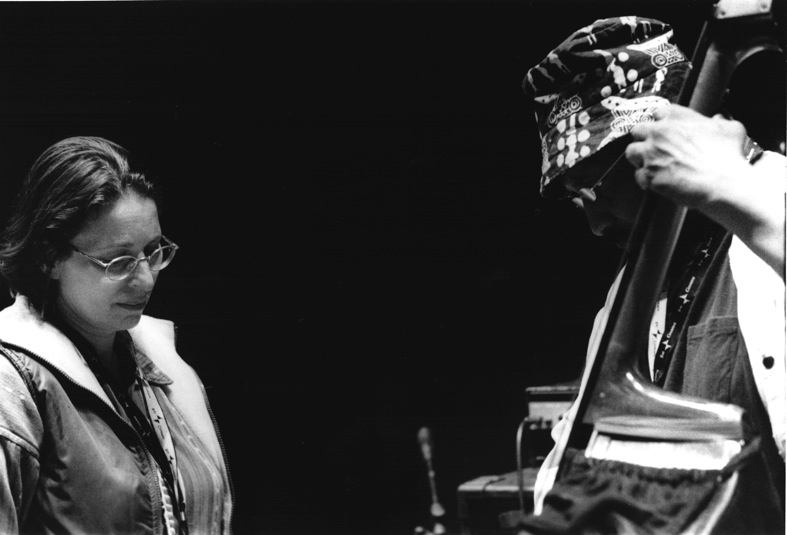William Parker & Patricia Nicholson Parker

Photo credit: Stefania Errore
Creative power-couple bassist-composer William Parker (http://www.williamparker.net/) and dancer-choreographer Patricia Nicholson Parker, do not mince words when it comes to artistic vision. In a 2008 interview in All About Jazz, Nicholson says “We need to take our visions seriously.” Early in their careers, Nicholson and Parker created a huge repertoire of composed music for multiple ensembles, directing and organizing “A Thousand Cranes Peace Opera,” for the opening of the UN Special Sessions on Disarmament and working with bassist Peter Kowald to help organize the artist-run Sound Unity Festivals between 1984 and 1988. Nicholson successfully initiated the Improvisers Collective, which morphed into the Vision Festival, and together they have worked meticulously to bring the Vision Festival to New York for the last 15 years. Parker emphasizes performance and Nicholson works tirelessly behind the scenes. Progressive jazz lovers in New York know the annual Vision Festival as a marker of endurance, emphasizing a sense of community as it continues to profile free jazz and avant-garde music in the face of more commercial musical enterprises. Art for Art, an organization Nicholson founded in 1995, also coordinates a weekly Vision Club series, and each year the Vision Festival honors the lifetime achievement of a particular artist.
In 2007, in keeping with this emphasis on the links between music, community, and justice, Parker released The Inside Songs of Curtis Mayfield with poet Amiri Baraka, a project that sought to see what was happening to the people by investigating the music. A discussion around this work, and the very future of jazz, between Parker, Baraka, and Ron Gaskin, took place during the 2007 Guelph Jazz Festival Colloquium, and can be found here.
Listen to - or read - New York Times contributor Nate Chinen's broad-ranging conversation with Parker and Nicholson, and read Chinen's reflections on their discussion, in our research collection.
